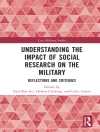Narrative research has become increasingly popular in the social sciences. While no part of the process is easy, researchers often struggle to make sense of data that can seem chaotic and without a discernable pattern. This book shows how to analyze stories, storytelling, and stories in society, bringing together a variety of approaches to both texts and narrative practice under one cover.
สารบัญ
Part 1. Analyzing Stories
Chapter 1. Exploring Psychological Themes through Narrative Accounts – Dan P. Mc Adams
Chapter 2. Practicing Dialogical Narrative Analysis – Arthur W. Frank
Chapter 3. Narrative Analysis as an Embodied Engagement with the Lives of Others – Andrew Sparkes and Brett Smith
Chapter 4. On Quantitative Narrative Analysis – Roberto Franzosi
Part 2. Analyzing Storytelling
Chapter 5. Narrative Practice and Identity Navigation – Michael Bamberg
Chapter 6. Exploring Narrative Interaction in Multiple Contexts – Amy Shuman
Chapter 7. Speaker Roles in Personal Narratives – Michele Koven
Chapter 8. Situational Context and Interaction in a Folklorist′s Ethnographic Approach to Storytelling – Ray Cashman
Part 3. Analyzing Stories in Society
Chapter 9. Analyzing the Implicit in Stories – Martha Feldman and Julka Almquist
Chapter 10. Analyzing Popular Beliefs about Storytelling – Francesca Polletta
Chapter 11. The Empirical Analysis of Formula Stories – Donileen Loseke
Chapter 12. Analyzing the Social Life of Personal Experience Stories – Tamar Katriel
เกี่ยวกับผู้แต่ง
Jaber F. Gubrium is professor and chair of sociology at the University of Missouri. He has an extensive record of research on the social organization of care in human service institutions. His publications include numerous books and articles on aging, family, the life course, medicalization, and representational practice in therapeutic context.












